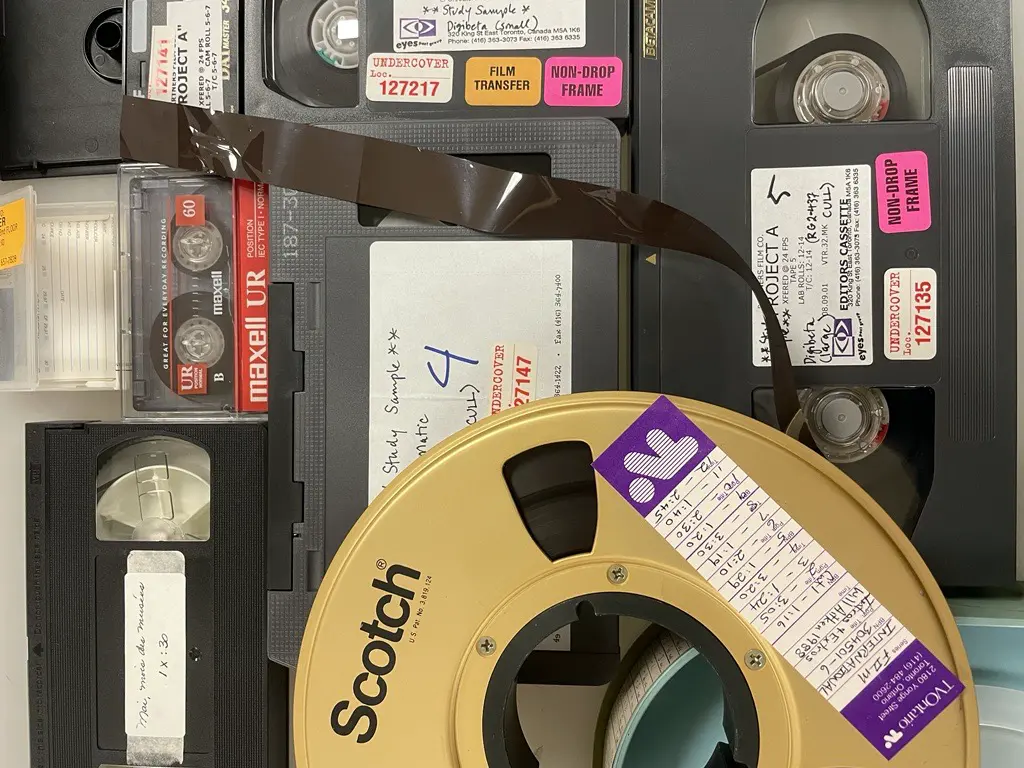Magnetic media – it was everywhere!
Unless you have lived off the grid for most of the last 75 years you have likely interacted almost daily with magnetic media technology. Whether through re-watching a recorded version of Joe Carter’s iconic 1993 home run on VHS, or listening to your Big Shiny Tunes audio tape, magnetic media has played a part in shaping your consciousness. But did you know that while magnetic media technology has shaped the hearts and minds of Ontarians for generations, records of this impact are quickly disappearing? To prevent this loss of Ontario’s audio and video heritage, we’ve begun a project to migrate media from magnetic tape to digital formats.
But first, what is magnetic media and why is it so at risk?
Magnetic media is media that is stored as magnetic binary data on a variety of different physical carriers and can be played using a machine designed to read that data. Unlike motion picture films, which consist of a series of images run in rapid sequence to simulate movement, magnetic tape cannot be read by the naked eye. For this reason, magnetic media records are only useful so long as the associated playback equipment can be found in working order. Magnetic media was also rarely created with long-term preservation in mind and is highly susceptible to physical deterioration.
This video of the Toronto Marathon from 1992 has the hallmarks of mass-market magnetic video: poor resolution, audio warp and horizontal tracking lines.
How we’re preserving our magnetic media holdings
We’re stewards of over 20,000 magnetic media tapes. The media contained on these magnetic tapes is diverse and, in many cases, irreplaceable. We are working to create “digital surrogates” of everything recorded on these tapes, basically digital copies that can be stored online for quick reference access but also held in a long-term digital preservation format called Linear Tape – Open or “LTO.”
The Archives’ proactive migration of this media helps ensure that Ontarians will have continued access to memorable Ontario TV and radio shows, like those in the CJRT-FM fonds or Multilingual Television (Toronto) Limited fonds. It also preserves large oral history collections, like the Maclean-Hunter Limited fonds, as well as valuable government-created recordings of interviews and hearings related to the Royal Commission on Workers’ Compensation and the Walkerton Inquiry.
The Archives of Ontario looks forward to sharing more information as this project progresses and, copyright permitting, sharing evidence of our collective audio/video heritage as widely as possible. Stay tuned!

